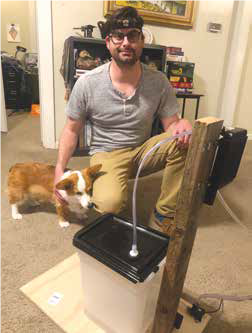Analyzing the Properties of Solid-state Refrigeration Technology: Thermoelectric Coolers (TEC)
For my capstone project, I chose to study Solid-state Refrigeration Technology and analyze the properties of a commercially available device, commonly called a Thermoelectric Cooler (TEC). Conventional refrigeration technology is a mechanical system that uses high pressure gases, typically a type of hydrochlorofluorocarbon (HCFC), which is an aggressive greenhouse gas. TECs, on the other hand, have no moving parts that require maintenance or emit noise and use no high-pressure gases or liquids, which makes them extremely reliable. They are comprised of a series of p-type and n-type semiconductor pairs between two ceramic plates as these semiconductors have different charge carrying capabilities. I wanted to create a system to measure a typical TEC’s Cooling Capacity and Efficiency. In short--how much thermal energy can the TEC draw from an enclosed system per unit time and how much electricity did it take to perform the task? I designed and built a test apparatus to create as close to an ideal operating environment as possible so that my measurements could be as accurate as possible.

Researchers: Ernest Ongaro
Project Type: Capstone
Academic Year: 2019

